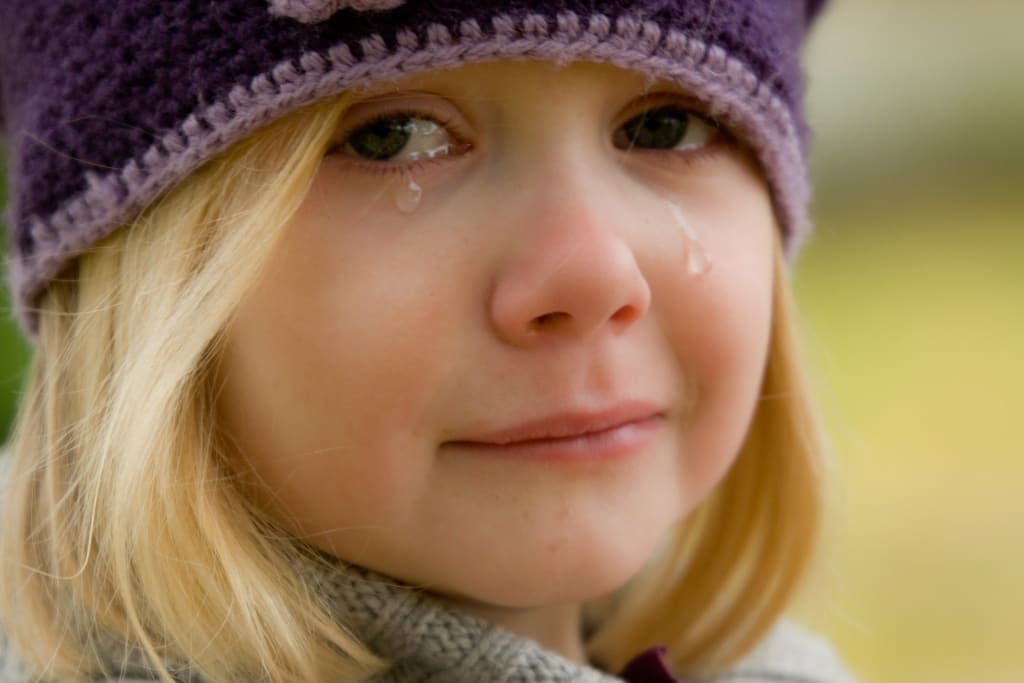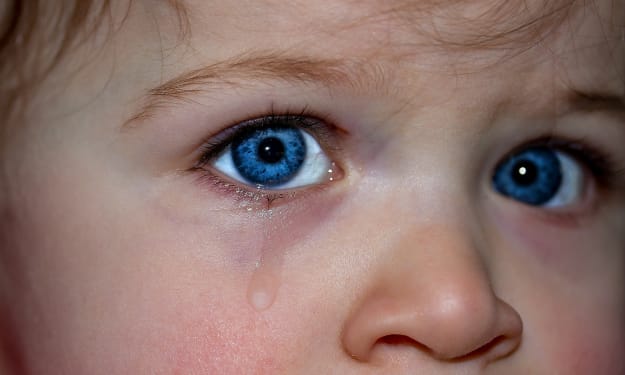Why Smacking Children Can Be Physically and Emotionally Dangerous
When coming from a state of anger, noone can possibly know how much force “teaches” a child and when the line has been crossed to beating or causing physical or emotional harm.

Physical punishment damages the bond between parent and child because it’s not natural to feel love toward someone who hurts us.
This reasoning should be sufficient to stop any parent hitting a child, but when it’s all we know, and when it was done to us without causing any apparent harm, then we continue the cycle of using physical punishment on our children.
We use physical punishment to ensure the children we raise will become good, decent human beings; people with good manners, who know right from wrong, and who know how to behave themselves.
What we must ask ourselves, though, is what price do these children pay for your behaviour?
The Cost of Physical Punishment
As children, every hurt, anger, humiliation, embarrassment, pain, and so on, is stored within the cells of our bodies, and there comes a time when these feelings must be released: that’s where our angry, depressed, and unapproachable teenagers come from!
As a parent who was hit as a child, you may be thinking, “Well, that didn’t happen to me,” but if you look honestly and deeply within yourself you’ll discover the hurt and humiliated child: the child who always wondered why the parents who supposedly loved them could cause them so much pain.
Most of us were hit when we were children, a fact we don’t like to be reminded of in adulthood. I believe that, subconsciously, we all know that hitting damages the child, but because we choose not to acknowledge that we were damaged as children, we choose instead to believe the lie that physical violence is harmless.
Most adults refuse to feel the pain of having been hurt, humiliated, and unloved when they were hit or beaten by an adult who was so much bigger than they were. To make matters worse, the person who perpetuated the violence against you was someone you loved dearly. This is a truth that most people cannot bear, so they repress it.
Children store their frustration and anger against their parents, feelings that can’t safely be expressed by a child. At some point in time, these children will feel strong enough to express their rage, which can be quite shocking to parents.
Yes, in the early years, punishment does appear to produce good behaviour, but sadly there will be a price to pay when the child enters early adulthood. And, even when physical punishment appears to work, the resulting behaviour is only superficial – it’s based on fear, and this can only last until the child reaches an age when they’re not so vulnerable.
Hitting children with a hand, belt, or other object is a sad attempt at disciplining children and teenagers that results in loss of trust, battered spirits, and feelings of shame, crushed self-esteem, and betrayal by the very people who are supposed to protect and love them. As teenagers, these children will typically become rebellious and resentful, and sadly, many beaten children suffer from depression in adulthood.
Why Are Children the Exception to Laws Against Abuse?
Perhaps the overriding question is this: Why are parents allowed to hit their children when it’s not allowed in any other relationship in our society?
But there are other reasons why physical violence towards children should be banned: a study conducted in 2009 discovered that hitting children can reduce the grey matter in their brains. “Harsh corporal punishment could have harmful effects on trajectories of brain development,” the study concluded.
Now this is scary stuff! Your response to this might well be that you don’t hit your kids very hard or that you only do it when your buttons are really pushed, but the truth is that parents frequently come home tired, frustrated, and angry, and simply don’t have the patience to deal with their tired and niggly children. Another awful truth is that when you hit a child who’s been pushing your buttons you’ll experience a great sense of relief, so-much-so that you could be driven to hit the child even harder. We all have our breaking point, and it’s so easy to cross over that line. The truth is that adults often get out of control when they hit children.
Many parents simply repeat the same patterns from their own childhood, believing there’s no other way. They carefully hide their feelings of pain, saying that despite the pain and humiliation, they’re still very “normal” adults. It doesn’t take much digging to discover that these are wounded souls; children who loved their parents but struggle to understand why their parents beat them.
As parents ourselves, we need to understand that we can honour our own parents without doing exactly what they did. Times change, and today we know better. Rejecting your parents’ beliefs and traditions does not mean you don’t love your parents. They believed that what they were doing was right, but today, as a parent, you know that physical violence against a child can be very damaging in many ways.
What Violence Teaches Children
Renowned author Alice Miller says that “children should not be the scapegoats of adults’ painful experiences.” Physical punishment sends the message to children that it’s quite okay to hurt someone else provided they’re weaker and smaller than you are. It also sends a message that hitting is an acceptable way of solving problems and expressing feelings.
We teach violence by hitting our children and, besides being an abuse of power, hitting is humiliating to children. Hitting teaches our children to be distrustful, to hide their real feelings, and from their parents they learn that violence is the appropriate way to resolve conflicts.
Alice Miller says that the worst pain we experience when becoming emotionally honest is to admit we were not loved when we needed it most — a concept that’s extremely painful to accept, because basically, we’re admitting that we’re still waiting for our parents to change — to love us.
According to Doctor Bruce Lipton, it’s biologically impossible for a child to be fearful yet still learn and implement higher-order thinking. According to Lipton, spanking makes children perform worse in school. And, when you spank a child, you’re telling them that violence is an appropriate way of resolving life’s problems.
For me, personally, the greatest issue I have with physical violence towards children is that it shakes the very foundation of trust between a child and its parent. As a parent, you are your child’s whole world and they trust you to have their best interests at heart, so hitting them can only cause your child to question their worthiness and your love for them.
Please, please don’t hit your children! They are precious little people who love and trust you. Spend some quality time researching other ways to discipline your children without using violence. In my next article, I’ll explain the methods I used to discipline my children and grandchildren.
You may like to read my earlier article about why you should not spank your children.





Comments
There are no comments for this story
Be the first to respond and start the conversation.